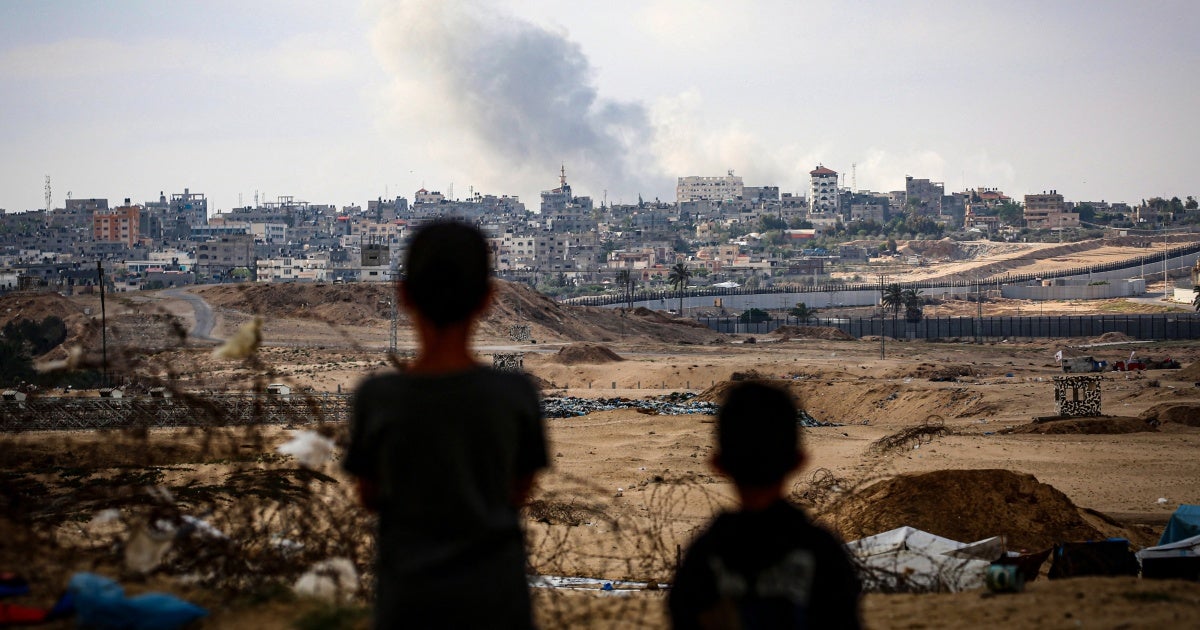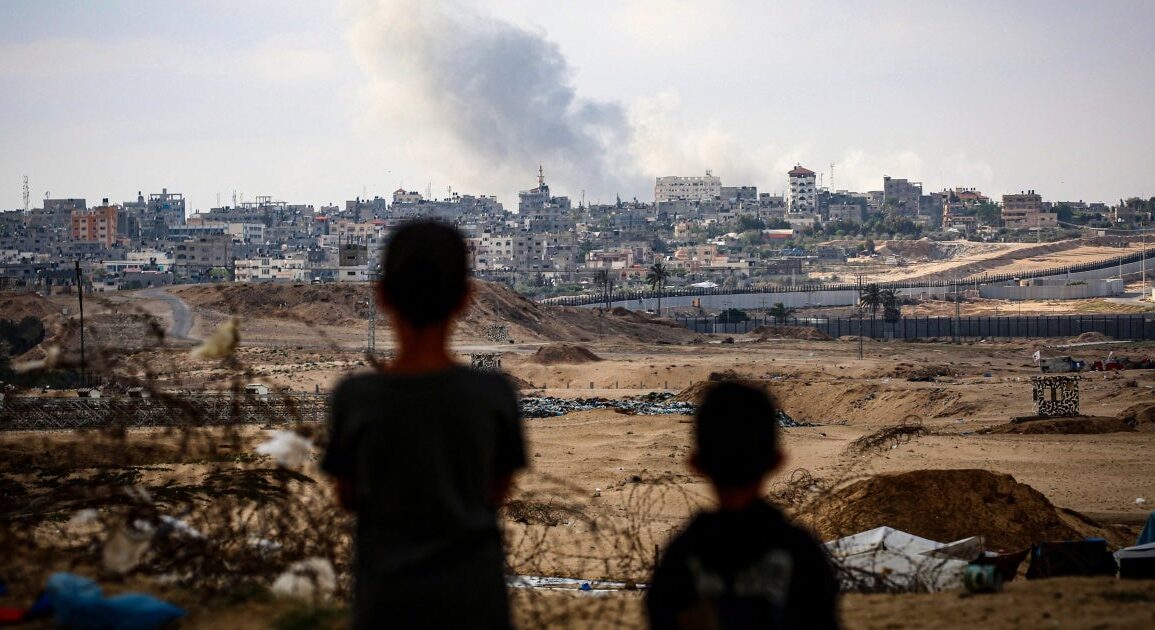
All victims of gross human rights violations in Palestine and Israel are owed reparation, Human Rights Watch said today. Human Rights Watch on June 26 submitted recommendations to the UN Special Rapporteur on the situation of human rights in the Palestinian territories occupied since 1967. The rapporteur, Francesca Albanese, had invited input to inform her October 2024 report to the United Nations General Assembly on the ongoing hostilities.
Under international law, governments responsible for abuses are obliged to provide effective remedies for human rights violations, including through truth, justice, compensation, memorialization, and guarantees of non-recurrence. Non-state armed groups also have responsibilities to provide reparation. Reparation processes should center on the rights of victims and be carried out after meaningful and effective consultations with them. Other countries that have, or whose businesses have, supported one side or the other should contribute to reparations and all other countries should press the parties to the conflict to commit to provide reparations.
“The parties to the conflict need to repair the harm they have caused to victims in the ongoing hostilities,” said Clive Baldwin, senior legal adviser at Human Rights Watch. “Governments supporting Israel and Palestinian armed groups should not only use their leverage to stop further abuses, but also to ensure that victims and survivors receive meaningful reparations.”
Albanese sought submissions from civil society, academics, governments, and others on her upcoming report, which will examine “how Israel’s post-October-7 policies and practices have impacted the rights of the Palestinian people in the West Bank, including East Jerusalem (since 7 October 2023), and in Gaza (since 1 March 2024, which marked the end of the last reporting period).”
Israeli forces have unlawfully attacked residential buildings, medical facilities, and aid workers, and used starvation as a weapon of war in the Gaza Strip, which has suffered a staggering toll of 37,600 people killed. Israel has restricted imports of aid to Gaza as well as medical evacuations, leaving people who have been wounded, women and girls giving birth, people with disabilities and chronic conditions, and others with no or inadequate medical treatment, with devastating consequences. Israeli authorities have detained and mistreated thousands of Palestinians, with persistent reports of torture.
In the Gaza Strip, Israeli forces have displaced the majority of the population, including through unlawful evacuation orders, and destroyed the majority of homes, schools, hospitals, agricultural land, and other civilian infrastructure, with many forced to live in unsafe, unsanitary conditions. In the West Bank, where Israeli forces have killed over 500 Palestinians, Israeli authorities have forcibly displaced entire Palestinian communities. These abuses take place in a context in which Israeli authorities are accelerating illegal settlement expansion, subjecting Palestinian prisoners to deteriorating conditions, and committing the continuing crimes against humanity of apartheid and persecution against Palestinians.
Palestinian armed groups on October 7 killed over 800 civilians in southern Israel, mistreated and inflicted sexual and gender-based violence on people they detained, took 251 hostages, destroyed homes, and have continued to launch indiscriminate rockets at population centers.
Both the Israeli authorities and Palestinian armed groups should cease all violations, guarantee that they will not recur, and that they will take measures to address the harm they have done, Human Rights Watch said.
In particular the Israeli authorities should ensure that wounded Palestinians in need of medical treatment and rehabilitation can exit Gaza to obtain it and guarantee their right to return.
Israel should also ensure financial and other support and cooperation to rebuild Gaza, and support the return of Palestinians to homes from which they were displaced in the West Bank. Israel should provide restitution by lifting the ban on Palestinians’ permanently returning to their former communities in what is now Israel, Human Rights Watch said. It should provide financial compensation to all Palestinians for the harm suffered from the crimes committed against them, including physical, psychological, and economic harm.
Israel should support survivors’ access to the truth by allowing visits by independent rights investigators, complying with the International Court of Justice (ICJ) order to provide fact-finding and investigative bodies unimpeded access into Gaza, and ceasing reported efforts to undermine the International Criminal Court (ICC) prosecutor’s investigation.
On their side, Palestinian armed groups and Hamas should immediately release civilian hostages, ensure accountability, and provide compensation to victims’ families and to survivors of unlawful attacks and other serious violations in Israel, Human Rights Watch said.
All parties should bring legislation and military orders into compliance with international law. For example, Israel should affirm the applicability of international law to its obligations in occupied Palestinian territory, and dismantle all forms of systematic oppression and discrimination, including laws and policies that violate the prohibitions on apartheid and persecution.
Third countries that provided offensive weapons to the parties to the conflict despite awareness of gross human rights abuses – including among others Germany, Iran, Italy, the UK, and the US as the largest arms supplier – should contribute to reparation. The home countries of businesses that have contributed to or benefited from Israel’s military campaign in Gaza should also ensure reparation for businesses’ roles in violations. Governments should commit to support and assist Palestinians’ return to their communities in Gaza, the West Bank, and in Israel, and third states and others should support compensation as needed.
Reparation could include full apologies from Israel, the United States, Hamas, and Islamic Jihad, as well as investigations into atrocity crimes in Palestine and Israel and accountability for those responsible.
“It is vital for any future reparation discussions to ensure meaningful and effective consultations with Palestinian and Israeli victims, as reparation should be centered around their rights,” Baldwin said.


